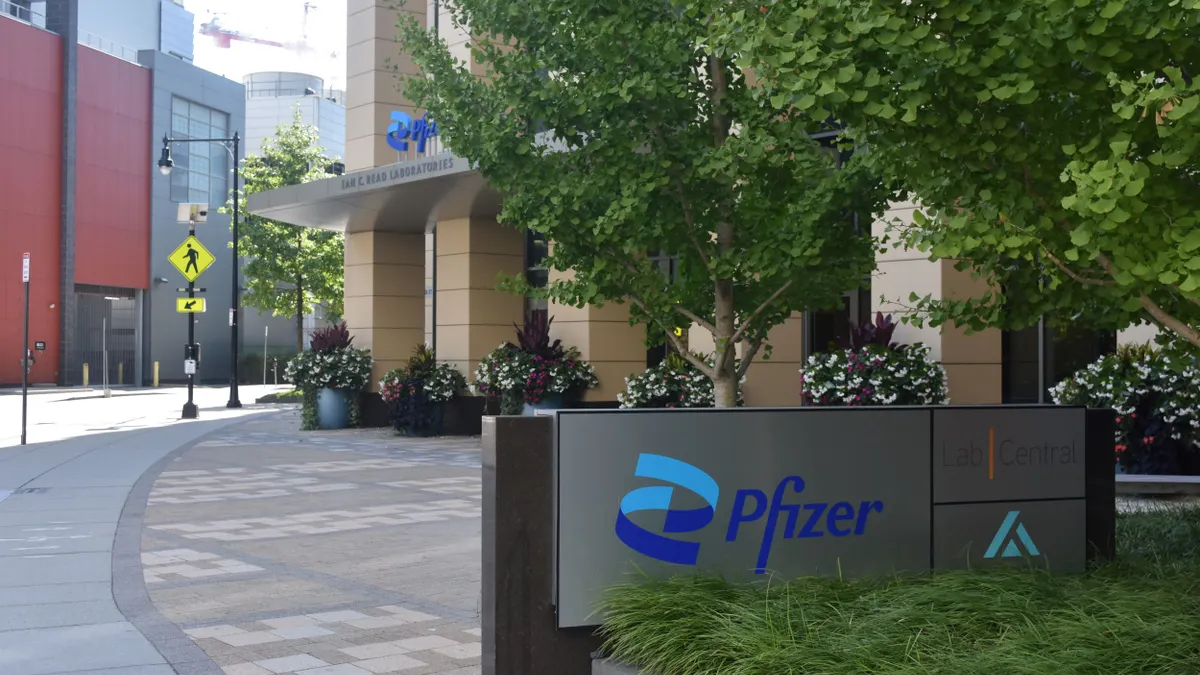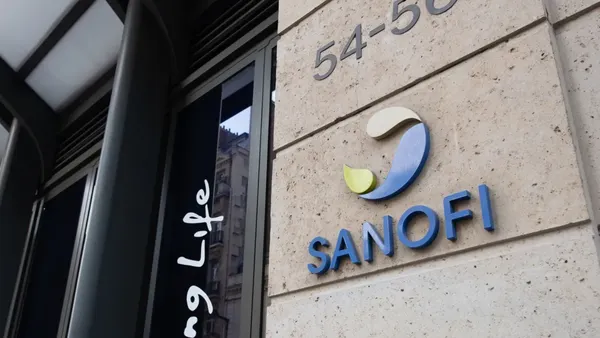Dive Brief:
- Weak demand for Pfizer’s hemophilia gene therapy Beqvez has led the pharmaceutical company to “cease further development and commercialization” of the one-time treatment, a Pfizer spokesperson confirmed to BioPharma Dive.
- Originally developed by Spark Therapeutics, Beqvez was licensed by Pfizer in 2014 and gained U.S. approval last April for people with hemophilia B, the less common form of the genetic bleeding condition. No sales have been disclosed by Pfizer.
- Pfizer intends to focus its resources on treatments it thinks “will have the greatest impact on patients,” such as a new drug for hemophilia A called Hympavzi that was recently cleared, the spokesperson added.
Dive Insight:
Pfizer’s decision to drop Beqvez essentially marks the company’s exit from the field of virally delivered gene replacement treatments. The drugmaker backed away from early research in 2023 to focus its efforts on later-stage gene therapies for Duchenne muscular dystrophy, hemophilia A and hemophilia B.
Those projects have now all been abandoned. Last July, Pfizer gave up developing the Duchenne therapy after disappointing data from Phase 3 testing, laying off some 150 employees in the process. Then, in January, it surprised partner Sangamo Therapeutics by handing back rights to the hemophilia A treatment, which was set to be submitted for regulatory approval.
Beqvez remained, but Pfizer appears to have lost confidence in its sales potential. In explaining Pfizer’s decision, the company spokesperson cited “the limited interest patients and their doctors have demonstrated in hemophilia gene therapies to date.”
Two others are approved in the U.S.: Hemgenix, which is sold by CSL Behring for hemophilia B, and Roctavian, marketed by BioMarin Pharmaceutical for hemophilia A.
Sales of both have been slow. CSL hasn’t broken out specific figures for Hemgenix, which carries a list price in the U.S. of $3.5 million. BioMarin reported $26 million in revenue for Roctavian, which it sells for $2.9 million. The company has limited sales to only the U.S., Italy and Germany, while ending most clinical development work as it focuses on other parts of its business.
All three therapies promise long-term control of bleeding by delivering functional copies of the genes mutated in people with the disease. Studies have proven them to be potent for at least several years, but hemophilia patients have other, effective treatments to choose from. And because of the way the therapies are built, patients may only be able to try one of the treatments, potentially incentivizing them to wait and see.
Pfizer said it will communicate its decision to the patients who are in the process of qualifying for Beqvez treatment. For anyone who was treated with the therapy in a clinical trial, Pfizer said it will continue to support the treatment sites in follow-up monitoring.
Pfizer has also informed Roche, which previously bought Spark, of its decision and is discussing the “best next steps” for Beqvez.














